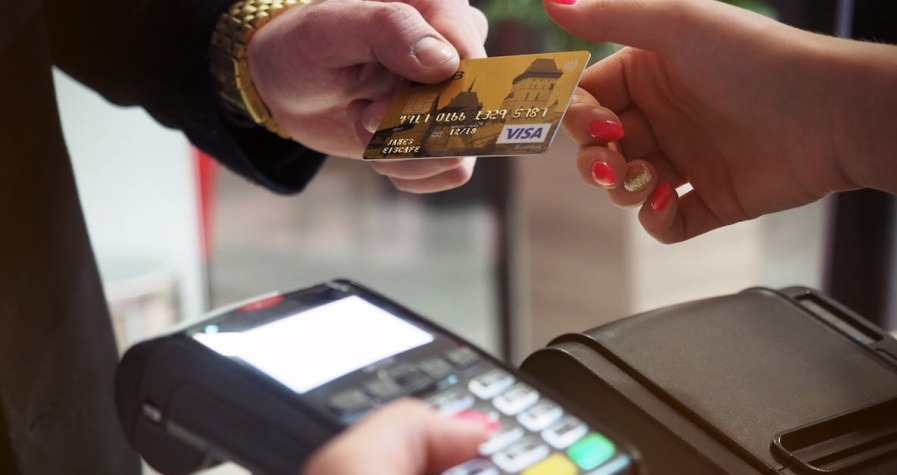You’ve probably heard about private keys in cryptocurrency conversations but might still wonder what they actually are and why everyone emphasises their importance. Think of a private key as the ultimate password to your digital wallet – it’s a unique string of characters that proves you own specific cryptocurrency or digital assets.
Unlike traditional banking where you rely on institutions to secure your money, cryptocurrency puts you in complete control. Your private key is the only thing standing between you and losing access to your funds forever. If someone else gets hold of it, they can drain your wallet instantly. If you lose it, there’s no customer service hotline to call.
Understanding private keys isn’t just technical knowledge – it’s essential for anyone who wants to safely navigate the world of digital currencies and blockchain technology.
What Is a Private Key?
A private key functions as your exclusive digital signature in cryptocurrency transactions. This cryptographic tool generates mathematical proofs that verify your ownership of blockchain assets without revealing the actual key.
Definition and Basic Concept
A private key represents a randomly generated string of 256 bits expressed as a 64-character hexadecimal number. Your private key acts like a master password that unlocks access to your cryptocurrency holdings stored on the blockchain.
Private keys contain exactly 2^256 possible combinations creating astronomical odds of duplication. This number equals approximately 10^77 different possibilities making it virtually impossible for two users to generate identical keys.
Bitcoin private keys typically appear in Wallet Import Format (WIF) beginning with characters like “5”, “K”, or “L”. Ethereum private keys display as 64-character hexadecimal strings starting with “0x”.
How Private Keys Work in Cryptography
Your private key enables digital signature creation through elliptic curve cryptography algorithms. The system uses your private key to generate corresponding public keys whilst maintaining mathematical relationships that prove ownership without exposing the private key itself.
Cryptographic hashing transforms your private key into multiple formats including:
- Public keys (compressed or uncompressed)
- Wallet addresses for receiving funds
- Digital signatures for authorising transactions
Your private key creates unique signatures for each transaction you authorise. Network participants verify these signatures using your public key confirming that you possess the corresponding private key without you revealing it.
The cryptographic process ensures that even sophisticated attackers cannot derive your private key from public information. This one-way mathematical function protects your cryptocurrency holdings whilst allowing transparent verification of legitimate transactions.
Types of Private Keys
Private keys serve different purposes across various cryptographic applications, each designed for specific security requirements. Understanding these distinct types helps you implement appropriate security measures for your digital activities.
Cryptocurrency Private Keys
Cryptocurrency private keys grant you complete control over your digital assets like Bitcoin or Ethereum. These keys function as mathematical proof of ownership, allowing you to authorise transactions and transfer funds from your wallet addresses.
Your cryptocurrency private key generates digital signatures that validate transactions on blockchain networks. When you initiate a transfer, the private key creates a unique signature that proves you own the funds without revealing the key itself. This cryptographic process ensures only you can spend your digital assets whilst maintaining transaction transparency.
Storage security remains critical for cryptocurrency private keys. Hardware wallets provide offline “cold storage” solutions that protect your keys from online threats like hackers and malware. Software wallets offer convenience but expose your keys to potential security vulnerabilities when connected to the internet.
| Storage Method | Security Level | Accessibility | Best For |
|---|---|---|---|
| Hardware Wallets | High | Medium | Long-term storage |
| Software Wallets | Medium | High | Regular transactions |
| Paper Wallets | High | Low | Cold storage |
SSL Certificate Private Keys
SSL certificate private keys enable secure HTTPS connections between web servers and browsers. These keys work alongside public certificates to encrypt data transmission and authenticate server identity during online communications.
Your server holds the private key whilst sharing the corresponding public certificate with connecting browsers. This asymmetric encryption system allows browsers to encrypt data using the public certificate, ensuring only your server can decrypt the information with its private key. The process protects sensitive data like login credentials and payment information during transmission.
Web servers require SSL private keys to establish trusted connections with users. Certificate authorities issue these keys as part of SSL certificates, validating your website’s authenticity and enabling the padlock symbol that indicates secure connections to visitors.
Digital Signature Private Keys
Digital signature private keys create cryptographic signatures that verify document authenticity and sender identity. These keys generate unique signatures for emails, contracts, and software distributions, ensuring recipients can confirm the content hasn’t been tampered with.
Your digital signature private key produces a mathematical signature linked to specific documents or messages. Recipients use your corresponding public key to verify these signatures, confirming both your identity and the document’s integrity. This verification process occurs without exposing your private key to others.
Professional applications utilise digital signature private keys for legal document signing, secure email communication, and software code verification. Industries like finance, healthcare, and government rely on these signatures to maintain compliance with digital security regulations and establish non-repudiation in digital transactions.
How Private Keys Are Generated
Private keys generate through sophisticated mathematical processes that create large random numbers. The security of your digital assets depends entirely on the quality and randomness of this generation process.
Random Number Generation
Random number generation forms the foundation of private key security through cryptographically secure random number generators (CSPRNGs). These specialised systems create truly unpredictable sequences rather than standard pseudo-random generators that attackers can potentially predict or reproduce.
Your private key generation relies on high-quality entropy sources to achieve maximum security. Physical entropy sources contribute additional randomness through:
- Environmental noise – capturing atmospheric disturbances and electromagnetic interference
- Hardware variations – utilising minute timing differences in computer processors
- User interactions – incorporating mouse movements and keyboard timing patterns
- Specialised hardware – deploying dedicated entropy collection devices
CSPRNG algorithms combine multiple entropy sources to create mathematically secure randomness. The generation process accumulates sufficient entropy before producing your private key, preventing attackers from predicting the output sequence.
Key Length and Complexity
Key length directly correlates with cryptographic strength and determines resistance against brute-force attacks. Different cryptocurrency systems implement varying key lengths based on their security requirements and underlying algorithms.
| Cryptocurrency System | Key Length | Security Algorithm |
|---|---|---|
| Bitcoin | 256 bits | Elliptic Curve Cryptography |
| Ethereum | 256 bits | secp256k1 curve |
| RSA Systems | 2048-4096 bits | RSA encryption |
| Traditional SSL | 2048+ bits | RSA/ECC hybrid |
Your 256-bit private key contains 2^256 possible combinations, creating approximately 10^77 unique possibilities. This astronomical number exceeds the estimated number of atoms in the observable universe, making random collision virtually impossible.
Elliptic curve cryptography (ECC) enables shorter keys whilst maintaining equivalent security to longer RSA keys. A 256-bit ECC key provides comparable protection to a 3072-bit RSA key, offering computational efficiency without compromising security standards.
The complexity requirement extends beyond length to include mathematical properties that resist various attack vectors. Your private key must pass specific tests ensuring it doesn’t contain predictable patterns or mathematical weaknesses that sophisticated attackers might exploit.
Why Private Keys Are Crucial for Security
Private keys form the cornerstone of digital security across multiple applications, providing essential protection for your data, identity, and digital assets. Understanding their critical security functions helps you appreciate why proper private key management is fundamental to your digital safety.
Authentication and Identity Verification
Private keys enable you to prove your identity in digital environments through sophisticated cryptographic processes. When you create a digital signature using your private key, you generate mathematical proof that only you could have produced, establishing authentic verification of your identity without revealing the key itself.
Digital signatures created with your private key serve multiple security purposes:
- Identity authentication – Recipients can verify that messages or transactions genuinely originate from you
- Data integrity protection – Any tampering with signed content becomes immediately detectable
- Non-repudiation assurance – You cannot deny having created a signature once it’s cryptographically verified
Your private key essentially acts as your unique digital fingerprint, providing irrefutable proof of authenticity in professional communications, legal documents, and blockchain transactions. This authentication mechanism protects against impersonation attacks and ensures that digital interactions maintain the same trust levels as physical signatures.
Data Encryption and Protection
Private keys provide robust data protection through both symmetric and asymmetric encryption systems. In asymmetric cryptography, your private key works alongside its corresponding public key to create secure communication channels that protect sensitive information from unauthorised access.
The encryption process offers comprehensive data protection:
- Confidentiality assurance – Only holders of the correct private key can decrypt protected information
- Transmission security – Data remains protected during transfer across potentially insecure networks
- Access control – Private keys act as digital locks, restricting information access to authorised parties only
Your private key’s cryptographic strength directly determines the level of protection your encrypted data receives. Modern private keys use 256-bit encryption standards, providing security levels that would require billions of years to break using current computational capabilities. This protection extends across email communications, file storage, secure messaging platforms, and financial transactions.
Digital Asset Ownership
Private keys serve as the ultimate proof of ownership for digital assets, particularly in cryptocurrency and blockchain systems. Your private key grants you complete control over your digital holdings, enabling you to transfer, trade, or manage assets without requiring third-party authorisation.
Digital asset control through private keys provides several ownership benefits:
- Exclusive access rights – Only you can authorise transactions involving your digital assets
- Self-custody capability – You maintain direct control without relying on intermediary institutions
- Transfer authority – Your private key enables secure asset transfers to other parties
Losing your private key results in permanent loss of access to associated digital assets, as no central authority can recover or reset cryptocurrency private keys. This irreversible nature makes private key security essential for protecting substantial digital investments. Hardware security modules (HSMs) and dedicated cryptocurrency wallets provide enhanced protection for private keys controlling valuable digital assets, ensuring your ownership rights remain secure against theft or technical failures.
Common Private Key Vulnerabilities
Your private key’s security depends on avoiding critical vulnerabilities that can compromise your digital assets. Understanding these common weaknesses helps you implement proper protection strategies.
Weak Key Generation
Poor random number generators create predictable private keys that attackers can exploit through brute force attacks. When you use systems with low-entropy generation processes, you’re essentially creating keys that follow patterns rather than achieving true randomness.
Cryptographically secure random number generators (CSPRNGs) prevent this vulnerability by incorporating multiple entropy sources including environmental noise, hardware randomness, and system timing variations. Quality random number generation requires sufficient entropy pools that collect unpredictable data from various system sources.
Your private key’s strength directly correlates with the randomness quality during generation. Weak implementations might reuse seed values or rely on predictable algorithms, making your seemingly secure 256-bit key vulnerable to sophisticated attacks that exploit mathematical patterns.
Storage and Backup Risks
Insecure storage methods expose your private keys to theft, loss, or unauthorised access. Storing keys in unencrypted files, cloud storage, or devices without proper security measures creates multiple attack vectors for cybercriminals.
Hardware security modules (HSMs) and encrypted vaults provide the highest protection levels by isolating your private keys from network-connected systems. These dedicated devices require physical access and authentication before releasing cryptographic operations.
Your backup strategy must balance accessibility with security to prevent both loss and compromise. Multiple secure backup copies stored in separate physical locations protect against device failure whilst encrypted storage prevents unauthorised access even if backups are discovered.
| Storage Method | Security Level | Accessibility | Best Use Case |
|---|---|---|---|
| Hardware Wallets | Very High | Medium | Long-term storage |
| Encrypted Files | Medium | High | Regular transactions |
| Paper Wallets | High | Low | Cold storage |
| Cloud Storage | Low | Very High | Not recommended |
Human Error and Social Engineering
Phishing attacks target your private key credentials through deceptive emails, websites, and communications that appear legitimate. Attackers create convincing replicas of wallet interfaces and exchange platforms to capture your authentication details.
Malware specifically designed for cryptocurrency theft scans your devices for wallet files, browser data, and clipboard content containing private keys. These programmes operate silently whilst monitoring your activities and extracting sensitive information.
Your susceptibility to social engineering increases when you lack awareness about common attack methods. Scammers exploit urgency, authority, and trust to manipulate you into revealing private keys or performing actions that compromise your security. Education about these tactics significantly reduces your vulnerability to human-targeted attacks.
Best Practices for Private Key Management
Protecting your private keys requires implementing comprehensive security measures that address storage, backup, and access control protocols. Following these established practices significantly reduces the risk of key compromise whilst ensuring long-term accessibility to your digital assets.
Secure Storage Methods
Store your private keys in Hardware Security Modules (HSMs), smart cards, or encrypted file systems to maintain maximum protection against unauthorised access. HSMs provide tamper-resistant hardware that automatically destroys keys if physical intrusion is detected, making them ideal for high-value cryptocurrency holdings and enterprise applications.
Combine physical and logical protection by placing storage devices in secured locations with restricted access whilst implementing multi-factor authentication for digital access. Avoid storing private keys on internet-connected devices or cloud storage services where they remain vulnerable to remote attacks.
Consider cold storage solutions such as dedicated offline computers or paper wallets for long-term storage of infrequently accessed keys. These methods eliminate network-based attack vectors whilst maintaining the cryptographic integrity of your private keys.
Regular Backup Procedures
Back up your private keys regularly using encrypted storage methods to prevent permanent loss from hardware failure, accidental deletion, or natural disasters. Create multiple backup copies using different storage media such as encrypted USB drives, secure cloud storage, or physical documents stored in fireproof safes.
Store backup copies in geographically separate locations to protect against localised disasters whilst maintaining identical access restrictions and encryption protocols. Test backup restoration procedures periodically to verify that recovery processes function correctly when needed.
Document backup creation dates and storage locations using secure record-keeping systems that authorised personnel can access during emergency situations. Implement automated backup schedules for frequently updated systems whilst maintaining manual oversight for critical verification steps.
Access Control and Permissions
Implement strict access control policies that limit private key access to authorised individuals through role-based permissions and multi-factor authentication systems. Create detailed access logs that record all key access attempts, successful authentications, and system modifications for security auditing purposes.
Monitor access patterns using automated alert systems that detect unusual activity such as failed authentication attempts or access from unrecognised devices. Review access rights quarterly or following personnel changes to ensure permissions remain appropriate for current organisational structures.
Establish key rotation schedules that replace existing private keys with newly generated ones at predetermined intervals, reducing exposure risk if keys become compromised. Implement secure key destruction procedures for decommissioned keys using cryptographic erasure methods that prevent data recovery attempts.
Private Keys vs Public Keys
Private keys function as your secret decryption tool, whilst public keys serve as openly shared encryption mechanisms that work together in asymmetric cryptography systems. Your private key remains confidential and decrypts data encrypted with its corresponding public key, or creates digital signatures for authentication purposes.
Understanding the Key Pair System
Private and public keys operate as mathematically linked pairs in asymmetric cryptography systems, creating a secure foundation for digital communications. Your private key generates a corresponding public key through complex mathematical algorithms, ensuring that these two keys remain cryptographically connected whilst serving different functions.
The key pair system relies on mathematical relationships that make it computationally infeasible to derive your private key from the public key. You can share your public key freely without compromising security, as it only enables others to encrypt messages for you or verify signatures you’ve created. Your private key, however, remains exclusively yours and provides the only means to decrypt incoming encrypted data or generate authentic digital signatures.
This asymmetric approach eliminates the need for shared secret keys between communicating parties, solving the key distribution problem that plagued earlier cryptographic systems. Messages encrypted with your public key can only be decrypted using your corresponding private key, ensuring that sensitive information remains accessible solely to you.
How They Work Together
Private and public keys collaborate through two primary mechanisms: confidentiality and authentication, each serving distinct security purposes in digital communications.
For confidentiality, you encrypt data using the recipient’s public key, ensuring that only their private key can decrypt the information. This process protects sensitive data during transmission across insecure networks, as intercepted encrypted messages remain unreadable without the corresponding private key. SSL/TLS protocols utilise this mechanism to secure web browsing sessions and protect online transactions.
For authentication, you sign messages using your private key, allowing others to verify the signature’s authenticity using your public key. This verification process confirms both your identity as the sender and ensures the message hasn’t been altered during transmission. Digital signatures provide non-repudiation, meaning you cannot deny having sent a signed message.
Blockchain systems exemplify this dual functionality, where your private key signs cryptocurrency transactions whilst your public key (or its derivative wallet address) receives funds. Anyone can verify transaction authenticity using your public key, but only your private key can authorise new transactions from your wallet.
This complementary relationship enables secure data exchange over untrusted networks, forming the backbone of modern internet security protocols and cryptocurrency systems.
Real-World Consequences of Compromised Private Keys
Compromised private keys create severe vulnerabilities across multiple digital domains, exposing you to significant financial and security risks. Understanding these consequences enables you to appreciate the critical importance of robust private key protection measures.
Cryptocurrency and Digital Asset Theft
Your compromised cryptocurrency private keys grant attackers complete control over your digital assets, enabling immediate and irreversible theft. Attackers can transfer your entire cryptocurrency balance to their own wallets within minutes once they access your private key. Unlike traditional banking systems, blockchain transactions can’t be reversed, making recovery impossible after theft occurs.
The scale of cryptocurrency theft through compromised private keys reaches billions of pounds annually, with individual losses ranging from hundreds to millions of pounds per incident. High-profile cases include exchange hacks where thousands of users lost their entire cryptocurrency holdings simultaneously due to centralized private key storage vulnerabilities.
SSL Certificate Security Breaches
Compromised SSL certificate private keys expose your website’s secure communications to man-in-the-middle attacks and data interception. Attackers possessing your SSL private key can decrypt all HTTPS traffic, access sensitive customer information, and create fraudulent certificates for your domain.
Certificate authority revocation becomes necessary once your SSL private key is compromised, causing immediate website security warnings and potential business disruption. Your website visitors receive browser security alerts, damaging your organisation’s reputation and customer trust whilst potentially causing significant revenue losses.
Identity Impersonation and Authentication Failures
Your compromised digital signature private keys enable attackers to impersonate your identity across various platforms and systems. Attackers can sign documents, authenticate transactions, and access restricted systems using your cryptographic identity, creating legal and financial liabilities.
Professional consequences include contract disputes, fraudulent document signatures, and unauthorised system access that appears legitimate due to valid cryptographic signatures. These attacks particularly impact legal professionals, financial institutions, and government organisations where digital signatures carry legal weight.
Communication Privacy Violations
Compromised private keys expose your encrypted communications to unauthorised surveillance and data harvesting. Attackers can decrypt previously intercepted messages and continue monitoring your communications without your knowledge, compromising business secrets and personal privacy.
Corporate espionage becomes possible when attackers access company communication systems through compromised private keys, potentially exposing trade secrets, strategic plans, and confidential client information. This exposure can result in competitive disadvantages and regulatory compliance violations.
System Access and Data Breaches
Your compromised private keys can grant attackers administrative access to secure systems and databases containing sensitive information. Attackers exploit these credentials to install malware, steal data, and establish persistent backdoors for continued unauthorised access.
Data protection regulations impose substantial financial penalties when personal data breaches occur due to compromised private keys, with fines reaching millions of pounds depending on the breach scope and affected individuals.
Conclusion
Your private key represents the foundation of your digital security and cryptocurrency ownership. It’s the single most critical element that determines whether you maintain control over your digital assets or lose them forever.
Understanding how private keys work and implementing proper security measures isn’t optional in today’s digital landscape—it’s essential. The mathematical complexity behind these keys provides unprecedented security when managed correctly but offers no protection against human error or poor security practices.
Take responsibility for your private key security by using hardware wallets for storage creating encrypted backups and staying vigilant against phishing attempts. Your digital future depends on the care you take with these crucial cryptographic tools today.
Frequently Asked Questions
What is a private key in cryptocurrency?
A private key is a unique digital password that grants complete ownership and control over your cryptocurrency assets. It’s a randomly generated 256-bit string represented in a 64-character hexadecimal format. This exclusive digital signature enables you to authorise transactions and proves ownership of your digital funds, functioning similarly to a master key for your crypto wallet.
How secure are private keys?
Private keys offer exceptional security with 2^256 possible combinations, making duplication virtually impossible. The astronomical odds ensure that two users will never generate identical keys. However, security depends on proper generation using cryptographically secure random number generators (CSPRNGs) and safe storage methods to prevent compromise or theft.
What happens if I lose my private key?
Losing your private key results in permanent, irreversible loss of access to your cryptocurrency funds. Unlike traditional banking, there’s no password reset option or customer service to recover lost keys. This makes secure backup and storage absolutely critical for protecting your digital assets from permanent loss.
How are private keys generated?
Private keys are created through sophisticated mathematical processes using cryptographically secure random number generators (CSPRNGs). These systems gather entropy from various sources like environmental noise and user interactions to create truly random 256-bit numbers. High-quality randomness is essential for preventing predictable keys that could be vulnerable to attacks.
What’s the difference between private and public keys?
Private keys are secret decryption tools that must remain confidential, while public keys are openly shared encryption mechanisms. They work as mathematically linked pairs in asymmetric cryptography. Your private key creates digital signatures and decrypts data, whilst your public key allows others to verify signatures and encrypt messages to you securely.
How should I store my private keys safely?
The safest storage methods include hardware security modules (HSMs), cold storage solutions, and hardware wallets for offline protection. Avoid storing keys on internet-connected devices or cloud services. Create encrypted backups stored in multiple secure locations, implement strict access controls, and consider professional-grade solutions for substantial cryptocurrency holdings.
Can private keys be hacked or stolen?
Yes, private keys can be compromised through various methods including malware, phishing attacks, weak key generation, and insecure storage. Poor random number generators can create predictable keys vulnerable to brute force attacks. Protecting against these threats requires using secure generation methods, proper storage solutions, and maintaining good cybersecurity practices.
What are the consequences of a compromised private key?
Compromised cryptocurrency private keys lead to immediate, irreversible theft of digital assets. For SSL certificates, compromised keys expose websites to man-in-the-middle attacks and reputation damage. Compromised digital signature keys enable identity impersonation and legal liabilities. The financial and security risks make robust private key protection absolutely essential.
Do I need different private keys for different cryptocurrencies?
Most modern cryptocurrency wallets use hierarchical deterministic (HD) technology, generating multiple private keys from a single master seed phrase. However, different blockchain networks may use varying cryptographic algorithms and key formats. Some cryptocurrencies require specific private key types, so it’s important to use compatible wallet software for each digital currency.
What’s the role of private keys in blockchain security?
Private keys are fundamental to blockchain security, providing cryptographic proof of ownership and enabling secure transaction authorisation. They generate digital signatures that verify transaction authenticity without revealing the private key itself. This cryptographic process ensures that only the rightful owner can spend their cryptocurrency whilst maintaining network transparency and security.








